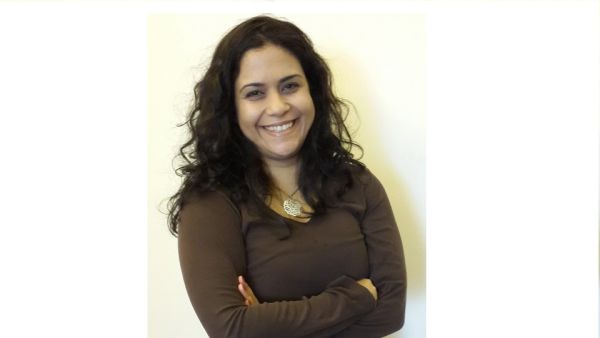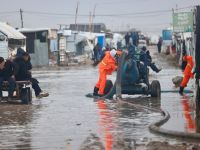How QF-supported Edtech Is Making Arabic Part of the Digital Learning Revolution

A passion for learning and change-making has driven the development of an EdTech platform that provides digital content in Arabic designed to meet the needs of today – supported by Qatar Foundation’s global education think tank.
Kamkalima is an Arabic educational platform housing fun and contemporary digital content within a framework that includes all the educational objectives of the Arabic language, from reading and listening to speaking and writing.
WISE, a Qatar Foundation initiative that brings the world together to shape the future of education, chose Kamkalima to join its WISE Edtech Accelerator – a program that helps to advance edtech solutions with the potential to make a positive educational impact – because of its aim of reimagining how language learning is accessed. This dedication to learning innovation has led to WISE continuing to partner with Kamkalima as one of the program’s alumni, allowing it opportunities to expand the scope of its projects and promote them at an international level.
Siroun Shamigian, co-founder of Kamkalima says: “Twenty years ago, I started my career as a teacher, and due of my passion for education, I was keen to promote an interactive and enjoyable environment for students.
“I was training a number of teachers to use technical tools via the Internet, but I noticed that there were challenges surrounding the Arabic language, due to the absence of digital content that simulates technological progress. I sat down with my colleague Nisrine El Makkouk, who shared the same vision about what education should be.
“We decided to look for a solution – and it was Kamkalima.”
According to Kamkalima co-founder El Makkouk, the platform is designed to fill gaps related to edtech in Arabic. “Kamkalima supports educators by providing content, tools, and in-depth data analytics to help educators prepare and deliver lessons, report on student progress, track student performance, and assess learning,” she says.
The platform, Shamigian explains, provides teachers with study plans in reading, expression, and listening, as well as educational resources and academic texts which teachers can control. “They can add specific resources on the platform, and we also give them practical guidance on how to improve performance,” she says.
"All of this leads to alleviating the burden on the teachers, allowing them the time to understand and identify students’ different abilities and to stimulate these abilities as much as possible, using the flexible tools that we provide them with.”
Through a survey conducted by WISE, it was found that, to a certain extent, learning the Arabic language has been excluded from the digital learning revolution, due to a lack of Arabic content that can help teachers create engaging learning experiences for students. This led to WISE’s relationship with Kamkalima beginning.
Speaking about the support Kamkalima has received from the WISE Edtech Accelerator program, El Makkouk says: “WISE is the only initiative in the Arab world that supports edtech projects, as it focuses on emerging projects through a team that has deep knowledge in this field.
“When we joined this program, we realized that we were taking a huge step forward, thanks to the professional experts and technical support that WISE provided us with."
And El Makkouk points out that Kamkalima’s connection with QF extends beyond WISE. The platform organizes activities and events with QF schools, which are also a testbed for it, and organized workshops for teachers on constructive critical thinking during the 2021 WISE Summit. This year, Kamkalima will participates in the WISE Accelerator as a Supporting Alumni.
“We believe that learning Arabic can be adapted to today's classrooms, but we need to provide the tools capable of reducing the challenges teachers face as they try to achieve this goal, and this is what we are doing within QF schools,” says El Makkouk.
“Teachers have responded to our plans and goals and shown a remarkable interest, which makes us optimistic about the future of digital education in Arabic within QF, and the region.”
Acquiring Arabic writing skills is the most challenging aspect, and Kamkalima platform contributes to improving these skills using Artificial Intelligence, through a digital assistant called Fahim.
"Fahim follows the writing pattern of the students, and instead of just correcting, it gives linguistic advice, while reminding students of the rules and vocabulary of the Arabic language,” Shamigian says. “This makes writing an enjoyable process, in addition to distinguishing between colloquial vocabulary and classical, and trying to provide alternative vocabulary for words that the student repeats, enriching their linguistic stock.”
Kamkalima works with writers from different Arab countries to create various Arabic texts, which are selected by specialized educators and converted into educational materials.” We decided to create modern resources that simulate the current interests of young people, in cooperation with writers and educators in the Arab world,” said El Makkouk.
Shamigian and El Makkouk believe that with cooperation and collaboration between educational institutions, academic experts, and decision-makers, a significant change can be made in younger generation's perceptions of the Arabic language, and that learning it can be made more attractive through the provision of interesting content.
"We are very optimistic about the digital future of the Arabic language; we are receiving requests to join us on an ongoing basis,” said Shamigian. “Today, 20,000 students and 450 teachers benefit from the platform, and it is being used in a school in West Africa for the first time, which motivates us to continue to expand and include schools from more countries She added,"
And El Makkouk says: "We dream of a generation who invent solutions in their mother tongue, and to help this dream be realized, we try to create spaces for learning that belong to us, to our environment and our identity, rather than coming from outside.
“We cannot be satisfied with observing the world as it changes. We must invent our own solutions to maintain our connection with this world, and this will only happen through strengthening our mother tongue as the language of communication and technology.”
Kamkalima is an alumni of the WISE Edtech Accelerator. Kamkalima was initially selected to be part of the program because of the way they chose to reimagine how we access language learning, and WISE has since continued to partner with them because of this dedication to learning
Background Information
Qatar Foundation
Qatar Foundation (QF) is a non-profit organization made up of more than 50 entities working in education, research, and community development.
Our unique ecosystem—supported by partnerships with leading international institutions—is built on initiatives that address our most pressing challenges, create global opportunities, and empower people to shape our present and future.






